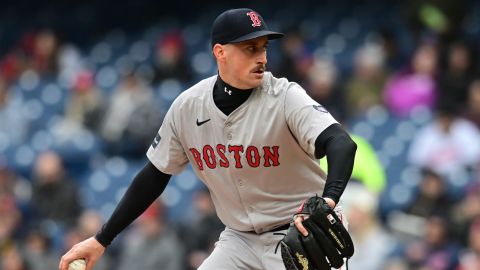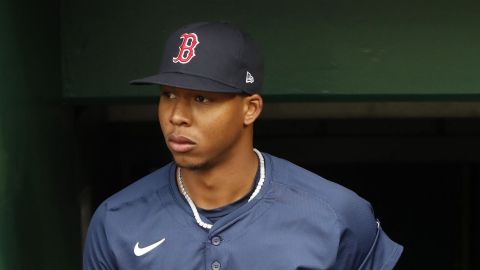When Darnell McDonald was called up to take a spot in the battered Red Sox outfield in mid-April, he was immediately thrust into a starring role. In his first game with the club, he smacked a game-tying, two-run homer in the eighth inning and then delivered a walk-off single in the ninth, finding himself mobbed by exuberant teammates.
Sleep was hard to come by that night, even though McDonald probably needed it. But when he came to the park tired the next day and proceeded to hit another home run, he started thinking this lack of sleep was a good thing.
Of course, that's not the case. As McDonald reminds us, baseball players are just superstitious. After 12 years bouncing around the minors as part of seven organizations, four of which have used him at the major league level, he has seen the merits of getting a good night's sleep, even if it is tough to come by.
"You gotta know what works for you and what doesn't as far as getting enough sleep, not getting sleep and how much you need so that you're all prepared for the next day," McDonald said.
The grind of the baseball season does not always allow for that. Often teams finish a game in one city and land in another early the next morning, only to have to be at the ballpark hours later for another game. When you're up against it, there are other measures which can be taken.
For McDonald, staying hydrated is key, just to keep from feeling too rundown. Then, when at the park, he always takes some time to collect his thoughts, which can be a bit haywire when sleep deprivation takes hold.
"I'll meditate a bit before the game, try to slow the mind down," McDonald said. "At my locker, the dugout, just try to slow everything down and relax the body a little bit."
Experts say the average adult needs about eight hours of sleep, and most of us feel the effects of getting a couple of hours less than usual.
"Sleepy people often get irritable, their judgment can be impaired, and their reaction time can get slower," according to Dr. Tom Scammell, an associate professor in the Sleep Disorders Clinic at Beth Israel Deaconess Medical Center. "Meditation and coffee may be partially helpful, but it is hard to fight against the biology of our brains."
A Colorado native, McDonald often handles his rest depending on where he is playing. He has appeared in 1,338 games at the minor league level but fewer than 100 as a major leaguer. The differences at each level are striking when it comes to travel.
In the minors, teams often take long bus rides as opposed to the quick chartered flight. All too often, they arrive in an opponent's town just before sunrise the day of a game. Compared to that lifestyle, McDonald calls the majors "a breeze."
That is, until his two young daughters wake him up, the 4-year-old to watch cartoons and the 10-week-old for whatever she might need. Sleeping in is never a luxury with those two, so his last measure is to simply accept it.
"I have two kids, so I'm used to it," he said of losing sleep. "Once baseball season comes, my body gets used to three, four, five hours of sleep. I try when I can to get eight hours."
It can be a challenging routine.
"Thankfully, most of us do not operate in high-pressure environments like professional baseball," adds Dr. Scammell. "But just think about how much more effective, creative and pleasant we could be with a full night's sleep."



